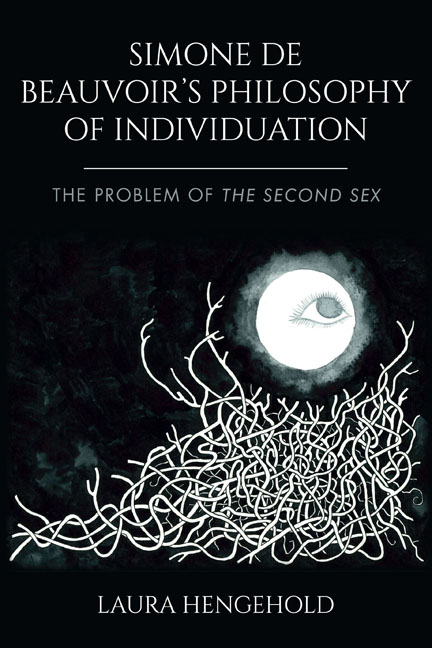7 - Conclusion
Published online by Cambridge University Press: 23 June 2018
Summary
This book began with something like a gamble. What would happen if we read The Second Sex as an exercise in the creation of concepts, as Deleuze defined philosophy? In Beauvoir's Introduction, we found evidence that her thinking process was provoked by encounters with the various forms of nonsense that pockmarked ‘sense’ in a sexist culture. Part 2 of The Second Sex describes many of the habits inculcated in women that render them supports for men's sense but ultimately fail to give them a stable subject of selfrecognition.
There already exists a tradition of reading The Second Sex as a critique of ‘sense’ or meaning in light of Beauvoir's involvement with phenomenology. How do we move from the critique of sense to the act of thinking? According to Difference and Repetition, thinking results when conflicting layers of habit are unable to generate a stable subject of recognition. An Idea whose object is ultimately a ‘problem’ takes the place of a ‘fractured I’. But Difference and Repetition also describes thinking as the successive awakening of impersonal faculties. The dramatisation, actualisation or eventual implementation of the Idea changes the form of the psychological and phenomenological subject who first entered on this journey.
The ‘Idea’ of Difference and Repetition results in a reorganisation of the actual, both in thought and experience. The ‘concepts’ of What is Philosophy? are described as involving components with their own histories, conceptual personae, a pre-philosophical plane and relations of consistency with other domains of thought and life. To read The Second Sex along Deleuzian lines required an investigation of concepts Beauvoir drew from historical figures and philosophical contemporaries such as Hegel, Kierkegaard, Husserl, Sartre and Merleau-Ponty. As explored previously in Chapter 2, Beauvoir's text emerged from contact between her observations of sexism and her long-standing interest in human singularity, exemplified by Bergson and Leibniz.
- Type
- Chapter
- Information
- Simone de Beauvoir's Philosophy of IndividuationThe Problem of The Second Sex, pp. 199 - 215Publisher: Edinburgh University PressPrint publication year: 2017



